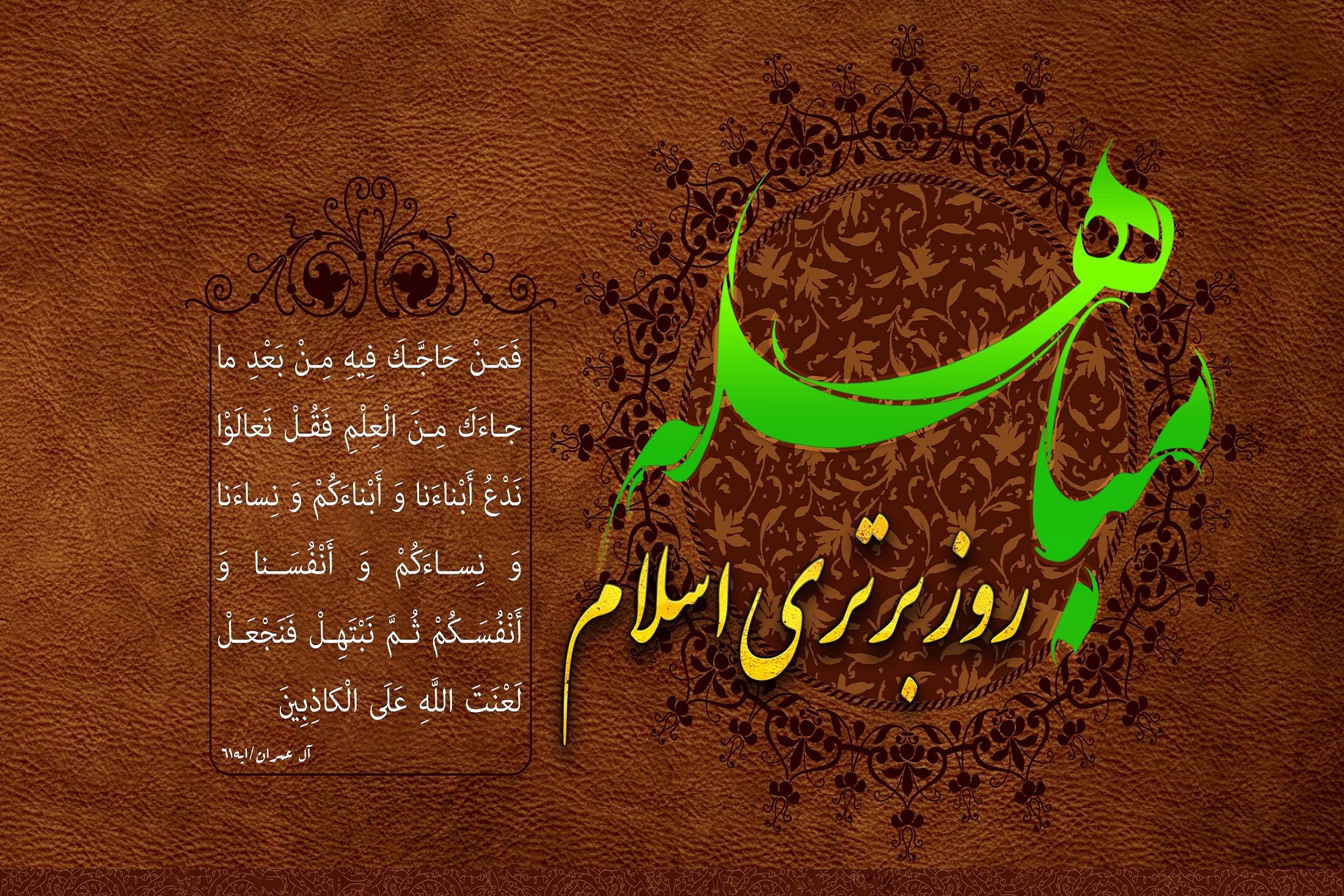Wilayat and Bara’at
It is interesting that in any topic or situation, opposites and contradictions are not given the same position. For example justice and oppression, good and evil etc. Islam too has considered only one of the two as accepted and not both. Justice is acceptable, oppression is not. Goodness is appreciated, evil is disliked. But Wilayat (love for Muhammad (s.a.w.a.) and his Ahle Bait (a.s.)) and Bara’at (hatred for their enemies) are two such opposites to which Islamic beliefs and teachings have given equal position and importance. It is an accepted Islamic belief and an important element of the Islamic belief without which no person can become a Muslim and no Muslim can become a believer.
The belief in Monotheism is the first and most important belief of Islam the Islamic beliefs. Its statement of acceptance contains both hatred in the form of “There is no god” and love in the form of “except Allah”. Even in the belief of Prophethood, Islam appreciates the rejection of every other person and only believe in the Messenger appointed by Allah, who is the Prophet of Allah, Muhammad (s.a.w.a.). And it does not appreciate that we get aligned to a pseudo-prophet or accept anyone other than a divinely appointed prophet.
Similarly, in the matter of repaying the efforts of messengership, the Holy Quran has accepted Mawaddah (unconditional love) only and only for the Family of the Holy Prophet (a.s.) and has rejected such love for anyone else. Both these beliefs, Wilayat and Bara’at, are mandatory consequences of each other. The expression of love for the Ahle Bait (a.s.) is the essential element of religiousness and this expression of love for Allah, His Messenger (s.a.w.a.) and his Progeny (a.s.) is incomplete without disgust for their enemies. Wilayat and Bara’at are two wings in the flight of monotheism which take man closer to Allah.
Wilayat means loving Allah, His Messenger (s.a.w.a.) and the Ahle Bait (a.s.) and accepting them as our rulers and absolute masters and acting sincerely on their orders. Bara’at means disassociating from the enemies of Allah, the Messenger and the Ahle Bait (a.s.) by heart, in words and in action and to disassociate from their religion and customs.
The importance and significance of the beliefs of Tawalla and Tabarra is neither hidden from the learned nor can it be neglected. These have been explicitly and abundantly mentioned in Islamic documents and the traditions of the holy infallibles (a.s.). These two are the essence and soul of the belief of a good servant of Allah, a pious person and a true believer. Piety and faith carry no value without Tawalla and Tabarra because their direct relation is with God and His pleasure and His orders. These two are not based on any person’s personal satisfaction or hatred for anyone. Just as we perform other acts of worship like prayers, fasting and pilgrimage etc only for the fulfilment of divine order and for the divine satisfaction and proximity, similarly, the basis of love for the Ahle Bait (a.s.) and hatred for their enemies is also based on divine order and for divine satisfaction and proximity due to which one becomes hopeful for divine reward.
Imam Baqir (a.s.) said to one of his followers, ‘When love for us and hatred for our enemies is not for any worldly expectations or personal malice or vendetta, but based on divine order and for divine proximity, then on the day of judgement, your eyes will be brightened and your heart will be at peace, angels will welcome you and you will be along with the Holy Prophet (s.a.w.a.), Ameerul Momineen (a.s.) and Imam Hasan, Imam Husain and Imam Ali b. Husain (a.s.).’
According to Shia doctrine, the love of Ahle Bait (a.s.) without the hatred for their enemies and the hatred for their enemies without love of the Ahle Bait (a.s.) is incomplete and in vain. But some manipulative elements due to their ignorance of true Islamic teachings and some inexperienced writers and speakers are trying to create a new environment among the Muslims. These people as per their own taste, interest and method, are trying to portray Islamic teachings in such a way that leads one to believe that there is no place for Tawalla and Tabarra in religion. They do not consider the differences of the Muslims of the initial days of Islam as differences.
They not only present the incidents which occurred post the martyrdom of the Holy Prophet (s.a.w.a.) in a very diluted manner but also prohibit mentioning these incidents. For example, they portray that the differences of Ameerul Momineen (a.s.) and some of the companions were “friendly differences” and in the form of “strong relations”. If these were “friendly differences”, then it would be interesting to know the bases of these differences. The companions abandoned the funeral of the Holy Prophet (s.a.w.a.). They neglected the instructions of the Holy Prophet (s.a.w.a.) and deserted his son-in-law and cousin and his beloved daughter, who were reduced to demanding their rights from the government. We have never seen such a friendship in which a friend is tied up in ropes and dragged through the streets. Was the demand for allegiance under the threat of swords a friendly gesture? Was the burning of the door of the house of the Prophet’s daughter with his grandsons Hasanain (a.s.) in it, an expression of strong relations? The slamming of the burning door on the Holy Prophet’s (s.a.w.a.) beloved daughter, her ribs being broken, her unborn infant getting martyred, Hazrat Fatima (s.a.) not speaking to the ‘caliphs’ her entire life and even not responding to their salutations, leaving this world in a state of anger, Ameerul Momineen (a.s.) calling himself as oppressed in Nahjul Balaghah and complaining about the oppressive actions of the so-called companions, his expression of regaining his right in case of having helpers and supports, were all these things based on friendly and cordial relations? If these aforementioned things show friendly and cordial relations, then we would want to know what does unfriendly relations mean, so that people can call the differences between the Holy Prophet (s.a.w.a.) and the apostates of Mecca as cordial differences and the refusal of Satan to prostrate on the order of Allah would also be called as expression of cordial relation.
The truth is that until the beliefs of Wilayat and Bara’at are not strengthened, truth and falsehood cannot be differentiated. Therefore, success is to believe in and truly submit to Allah, His Messenger and the Ahle Bait (a.s.). Wilayat and Bara’at not only make a man successful but also guide him to the right path and these two beliefs that are the cause of success and salvation of the Muslim nation and are the best differentiator between truth and falsehood.
O Allah, keep us on the love of Ali (a.s.) and his pure family and on the hatred of their enemies until our last breath and on the day of judgement, raise us in the company of the lovers and followers of the Ahle Bait (a.s.). Amen.



